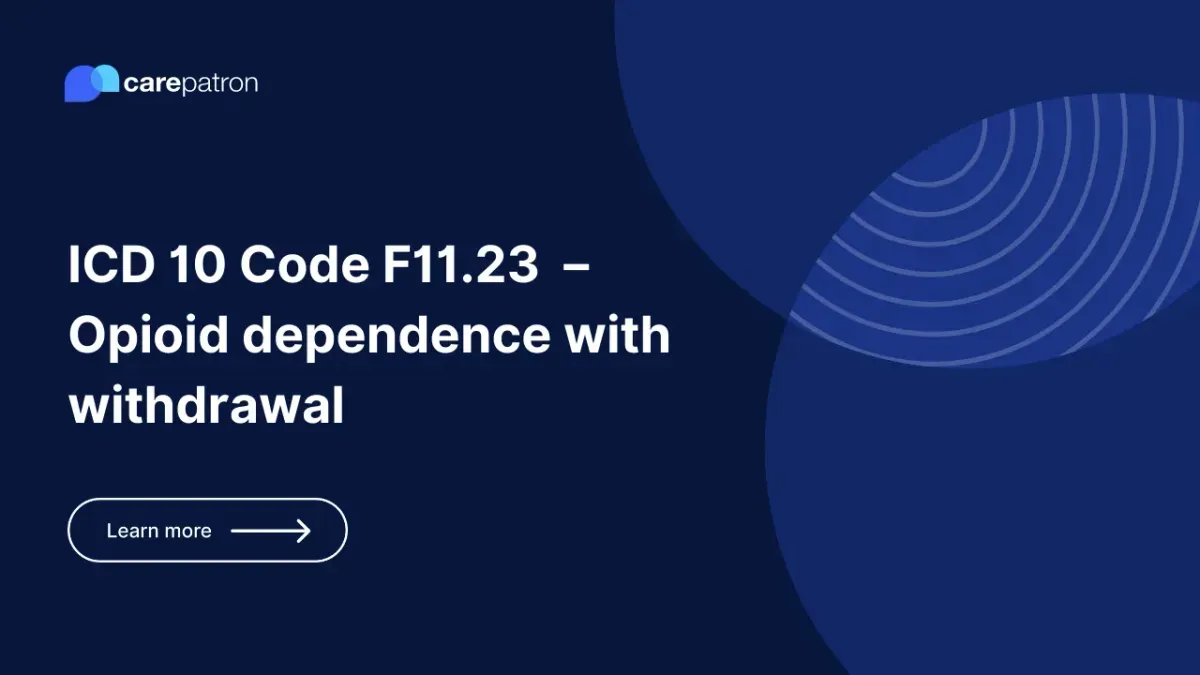
F11.23 – Opioid dependence with withdrawal
Read about F11.23, opioid dependence with withdrawal. Learn its clinical meaning, billability, related ICD-10-CM codes, synonyms, and more.
Use Code
Commonly asked questions
OUD stands for opioid use disorder, which is a medical condition characterized by the problematic use of opioid drugs, leading to significant impairment or distress. It includes a pattern of compulsive opioid use despite harmful consequences.
The ultimate goal of treatment for opioid dependence is to help individuals achieve and maintain long-term recovery by reducing or eliminating opioid use.
Diagnosis code F11.23 refers to opioid dependence with withdrawal. It is part of the F11 category for opioid-related disorders, which fall under mental and behavioural disorders due to psychoactive substance use.
EHR and practice management software
Get started for free
*No credit card required
Free
$0/usd
Unlimited clients
Telehealth
1GB of storage
Client portal text
Automated billing and online payments
